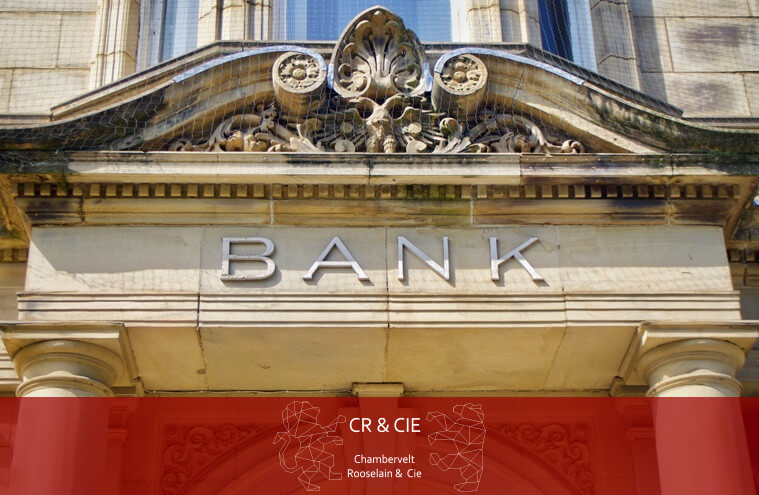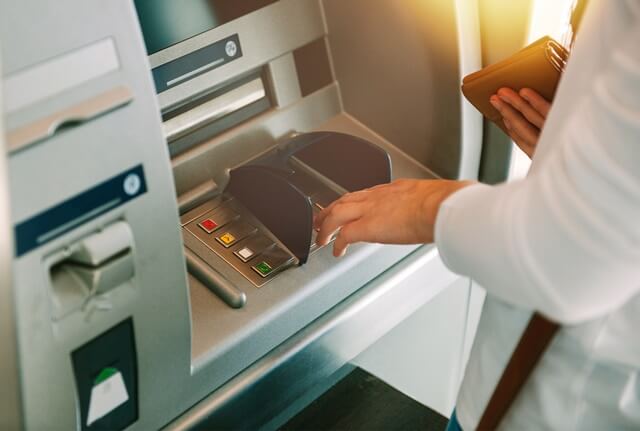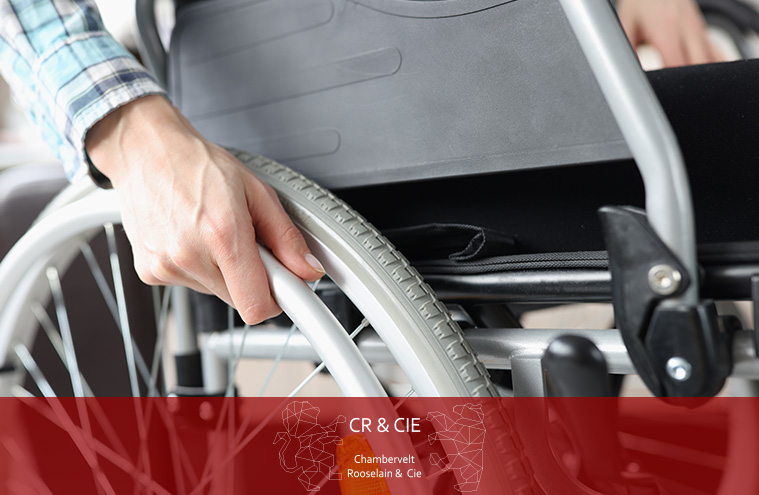

You recently moved to Germany, but don't know how to open a German Bank account? No problem! In this article, we will explain the paperwork behind it and everything else you might need to know.
For example, we will inform you about everything regarding the currency in Germany, and from which Bank Accounts you can pick. Furthermore, what types of Bank Accounts there are and the Institutions you can see for assistance.
For starters, you are required to get German insurance coverage by law. But you don't have to create a German Bank account, although we would highly recommend it. For example, you definitely need some sort of account, if you want to send and receive payments.
Then, you can either choose an international bank account, or a German mobile bank.
Because you need to pay German insurance, or utility bills, in regular intervals.
Germany has a banking system, with three major institutions:
But there are also a lot of mobile-, online, and international banks like:
Because Germany is part of the EUs eurozone, you will need to use euro (EUR) in the country. Which is very practical, as the currency can be used throughout most places in Europe, with only little exceptions.

While you were spending some time in Germany, you may have noticed how many ATMs there are. And thus for a very specific reason, which is Cash (Bargeld). If you want to purchase groceries, or even bigger payments, you might want to have cash with you.
Even though you can pay with your card in many places, you can never be so sure of that in Germany.
So, we would surely recommend you to always have some Coins or banknotes with you. For many people, especially if they moved from America, it can take quite some time getting used to. But soon you will also discover the advantages from paying with cash.
For example, it is easier to see how much you have paid in the day, and if you might need to lower your costs.
In Germany, there are different types of bank accounts, you can pick from. Here you can see a list of the main Types of German Bank accounts and some information on them.
If you are an expat, and reside in Germany, this may be the best option for you. International offshore bank accounts have many nice qualities, you will sure appreciate in the future. If you want to regularly transfer money between countries, or if you spend quite some time in more than one country, it is the option for you.
This type of account is often located outside the holder's country, where you reside. They offer advantages, such as more cross-services, or a lower taxation, which you will like.
The Commerzbank, or Deutsche Bank are solid examples, as they are protected and dependable.
Germans love to save money. Which is also the reason, why this type of bank account is so currently used. They can be used for set deposit (Festgeldkonto), or also for instantaneous access (Tagesgeldkonto). The latter meaning an account with minimum deposit and higher interest, as well as a fixed time, where the money has to stay in the account.
However, the savings account is not recommendable to invest your money. The interest rate is quite low and definitely below inflation level. You can use this account to store money you need in the close future or just for emergencies (like washing machine broke down, etc.) To save money long term, you have different options like stock market investment or real estate. At CRCIE we offer comprehensive pension planning advice.
These types of bank accounts are the most commonly used type in Germany. For students and young people, there are specialized accounts, as well as general accounts for everyone. Such accounts are mainly used for paying different bills and receiving wage.
If you work in Germany as an Expat you will need such an account.
Probalby all German banks offer a digital / mobile current account. They can be very useful, especially if you want to make payments from home. You may choose an app, or use the website, if you wish to receive money or make payments.
As the name indicates, these accounts are also available for people planning to move abroad, or who work in Germany. The other current accounts are mostly only usable for German residents, so this option could especially be helpful, if you are (not yet) a German resident.

Before you open your first Bank Account in Germany, you need to decide which option is most suitable for your needs. With this list of factors, it might be easier to pick the best choice for you.
Foremost, you have to look for the non-resident account availability. Especially if you want to open a bank account before moving to the country, you need to select either an international bank or a “Direktbank”.
If you need some English-speaking assistance, this factor is significant for you. Mobile banks and international banks have no problem offering you these English-speaking-services, if you have any questions or problems, you might need to solve.
When it comes to choosing the right bank to work with, you need to keep an eye on good customer support. Part of that can be, how fast the support responds and how the quality of the support presents itself. Please be careful of this factor, as it is one of the most essential ones.
Another undoubtedly substantial factor is to search for banks with High-quality banking services. Be sure to gather enough information about the services at hand, before making your final decision.
While fees may not seem to be such an important factor at first glance, as they can be seen as generally quite low for one payment, they can sure add up over some time. If you want to prevent high fee cost, a small difference in fees can go a long way.
If you would like to select a suitable bank, online services are getting more and more significant by the day. Paying and receiving payments can be extremely convenient if you can do it from home as well.
If you want to have cash on your hands at all times, as it is definitely recommended in Germany, you should look for banks, that have a wide network of ATMs and branches. Searching for them is effortless, you just need to search the web, and you will find all ATMs, you can use.
General information |
ATM availability and fees |
Monthly costs (basic accounts) plus credit card information |
Deutsche Bank |
||
One of the largest nationwide banks, the Deutsche Bank is extremely often referred to, also internationally. If you are a student, this bank can be seen as very practical because it offers many services, which are customized to your needs. Transfer of money can also be easier, as they have a partnership with the Bank of America. |
You can use all ATMs from the Cash Group, which is Commerzbank, Deutsche Bank, Postbank, and Hypovereinsbank for free. There is a withdrawal fee of 6 Euro or 1 Percent on other ATMs. |
There is also no monthly fee for young people. (to the age of 30) |
This bank is exceptional because it covers environmental factors, and uses your money for actions you can choose from, part of that can be investing in education and culture, as well as social and health concerns for example. It offers numerous mobile services too. |
You can use all ATMs of the Volks- and Raiffaisenbanks, many of the Sparda-Banks and of course the GLS Bank for free. |
For young people there is no monthly fee, if you are over 27 years old, you have to pay 3,80 EUR a month. |
Sparkasse |
||
Banks, such as these, are run as non-profit public services, and they do have a big diversity in service. You can also choose from a variety of network branches and ATMs in the whole country, which makes your money much less difficult to access. |
You can use ATMs from the “Sparkassengruppe” for free. |
There is an account for young people of the age 11 to 17 years, where you dont have to pay monthly fees. If you are over that age, you need to pay 2,95 EUR. The credit card costs 3 EUR per month. |
Hypovereinsbank |
||
This institution is known as the fifth-largest bank in Germany, but only available in German, so it might not be recommended for English-speaking folks. |
You can use all ATMs from the Cash Group and the Hypovereinsbank for free. |
Account for young people to the age of 26 is free. |
Commerzbank |
||
The Commerzbank is part of one of the largest banks that are currently available in Germany. That is also why there are so many ATMs options to decide from, as well a high-quality customer service and a site specified for English-speaking people. |
You can use all ATMS from the Cash Group for free. |
The credit card costs 39,90 EUR per year. |
N26 |
||
This modern bank has a great app and support in English, Spanish, French, Italian, and German |
Depending on your card and type of account, the amount of free withdrawals you can do varies. (All ATMs) Over the decided amount, you need to pay a fee of 2 EUR. |
You can get a free account with several useful features. The Mastercard is also free if you get the basic one. |
DKB |
||
The DKB Bank is known as one of the most popular online banks, there are in Germany. |
You can use all ATMs with a VISA-logo for free. (With the DKB-Visa-Card) |
You can get a free account with several useful features. |
In Germany, there are several documents, which you need to send, before you can open your account. They differ depending on which bank you have selected and what type of account you want.
Here is a list of the documents you must submit, if you want to open a German Bank account:
Especially if you just moved to Germany and are not from the EU, you should pay extra attention to showing your financial history.
Opening a bank account in Germany does not need to take a lot of time, generally it needs about 2 to 3 working days.
If you want to open a German Online Bank account, you are required to verify your identity. Most commonly used methods are PostIdent, an email code, or using a webcam.
If you have to use PostIdent to verify yourself, you need to download a verification sheet, from the bank and show it at a post office. You also need to bring your passport. Then they will sign your documents, and they will be sent to the bank of your choice.




ask the experts
Get to know us